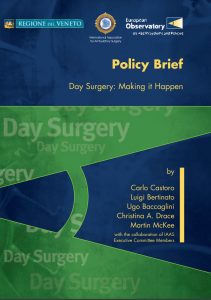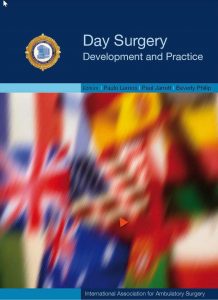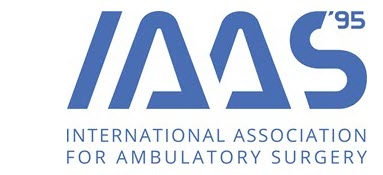It is more than a year since the WHO declared the COVID-19 outbreak a global pandemic. Surgical activity was significantly decreased or suspended in affected countries as the surgical pathway was reconfigured to ensure patient and clinician safety. The resumption of surgical interventions and procedures followed the introduction of widespread and targeted COVID-19 testing and vaccination programmes should permit an eventual return to pre-COVID-19 levels of activity. In many countries, however, the accumulated backlog of surgical patients awaiting operation is at an all-time high. Furthermore, many patients have been reluctant to seek surgical help during the pandemic due to safety fears and this is reflected in the low number of surgical referrals from primary care in this period. As a result, this covert cohort of potential patients awaiting operation has not yet been accurately quantified, but it seems likely that the backlog as currently measured is a significant underestimation of future demand. A return to pre-COVID levels of activity using the traditional inpatient hospital pathways will never clear this global backlog. Extending the working week through extra evening and weekend operating sessions may be limited by staff or bed restrictions and may prove too costly for many healthcare systems. As COVID-19 eventually comes under control, patients will again demand shorter waiting times and alternative strategies are required. Ambulatory surgery offers a cost-effective and quality pathway for both patient and hospital, and remains an underutilized option for routine elective surgery worldwide. This is a timely opportunity to demonstrate the value of Ambulatory Surgery as a key component of any strategy to combat the global backlog, by maximizing the number of recognized ambulatory procedures performed, and by introducing new ambulatory procedures to a hospital’s portfolio. The IAAS encourages all our members to assist in this task of promoting Ambulatory Surgery both locally, in their own hospital or healthcare environment, and where possible, by lobbying regional and national providers of healthcare. In this way, we can all participate in reducing waiting times for much-needed surgery, and offer our patients the safe and quality experience they deserve.
Announced at our 12th International Congress of Ambulatory Surgery in Beijing in May 2017.
To improve access to health care for all global vulnerable populations, including the poor, International Association for Ambulatory Surgery (IAAS) and China Ambulatory Surgery Alliance (CASA) will, by the way of announcing Beijing Declaration, call on developed and developing governments worldwide, the United Nations and its associated organizations, global non-governmental organizations and foundations for the poor, as well as physicians, surgeons and anesthesiologists, nursing staff and health managers around the world to take the initiatives to support the concept of ambulatory surgery, to develop a series of training courses in clinical technology, medical management and to promote the ambulatory surgery through theoretical and technical teaching and field observation.
With concerted, courageous and innovative actions taken by the international community, the great goal that ambulatory surgery could be implemented in the world will hopefully has been achieved and the global poor could access to health care by 2030.
Training Workshops – Day Surgery: Making it Happen
This is a 2½ -day international course on organizational models and best practices of day surgery. Course content draws on the experience of leading Day Surgery and Day Services from across Europe and North America with the aim to provide evidence-based solutions adaptable to the different local situations.
This course was originally supported by the Health Programme of the European Union – the IAAS continues to offer this programme.
Please contact us if you are interested via President@iaas-med.com
Developed by the IAAS to support the teaching provided during the Day Surgery:Making it Happen courses.
Available translated in
Chinese – Day Surgery Manual Chinese
English – Day Surgery Manual English
Hungarian – Day Surgery Manual Hungarian
Romanian – Day Surgery Manual Romanian
Serbian – Day Surgery Manual Serbian

The IAAS played a key role in this project.
This initiative studied, reviewed and identified and promoted essential components of DS systems and units, i.e. structures, clinical and patients management processes. The project compared, selected and systematically promoted best practices and standards. It also developed measurement instruments to gauge patients compliance with protocols and DS managers and providers conformity with standard inputs and processes.
 In this document we examine how day surgery can respond both to the policy needs of hospital administrators and to the surgical care needs of specific patients. We also review the barriers that some countries are experiencing in day-surgery development and explore what needs to be put in place so that day surgery can achieve its full potential.
In this document we examine how day surgery can respond both to the policy needs of hospital administrators and to the surgical care needs of specific patients. We also review the barriers that some countries are experiencing in day-surgery development and explore what needs to be put in place so that day surgery can achieve its full potential.
 IAAS book: An outstanding book with contributions from leading experts in the field of ambulatory surgery all over the world was published in 2006.
IAAS book: An outstanding book with contributions from leading experts in the field of ambulatory surgery all over the world was published in 2006.
It is important that definitions within the field of ambulatory surgery is the same in the member countries. Therefore a number of terms have been defined and translated to several languages.
